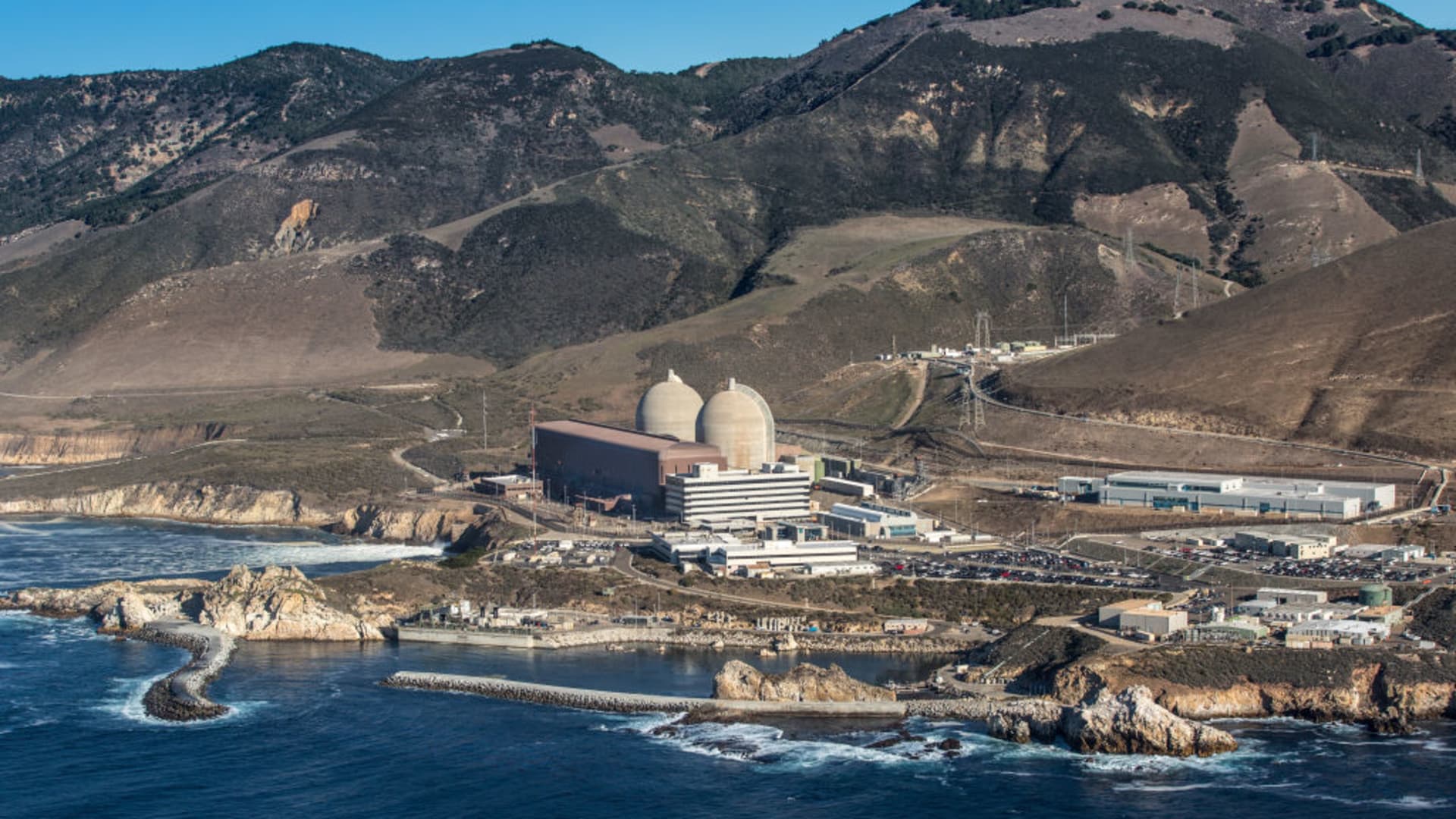
After humankind discovered nuclear fission, the first applied use was the atomic bomb. The study of fission for electricity production came later.
In December 1953, President Dwight D. Eisenhower gave his fateful Atoms for Peace speech, an impassioned plea to reconstitute the power of the atomic bombs dropped in World War II for a more noble cause.
“Against the dark background of the atomic bomb, the United States does not wish merely to present strength, but also the desire and the hope for peace,” Eisenhower told the United Nations.
Almost 70 years later, the tension between those end uses still underlies the space today.
From the 1950s through the 1970s, the United States dramatically increased its nuclear energy generation.
But the Three Mile Island accident in 1979 and Chornobyl meltdown in 1986 changed the landscape, spurring fear that nuclear energy could not be controlled safely.
Steam rises out of the nuclear plant on Three Mile Island, with the operational plant run by Exelon Generation, in Middletown, Pennsylvania on March 26, 2019.
Andrew Caballero-reynolds | Afp | Getty Images
Since the 1980s, nuclear energy capacity and generation in the U.S. has largely stayed flat. Today, the country’s fleet of nuclear power reactors produces only 19% of the country’s electricity, according to the government’s Energy Information Administration.
In more recent times, the Fukushima Daiichi accident in Japan in 2011 — and earlier this year the capture of nuclear power plants in Ukraine by invading Russian forces — have added to public concerns.
But despite its fraught origin story and the psychological effect of high-profile accidents, nuclear energy is getting a second look.
That’s largely because nuclear energy is clean energy, releasing no greenhouse gasses. Meanwhile, the world is seeing more of the effects of climate change, including rising global temperatures, increased pollution, wildfires, and more intense and deadly storms.
“We need to change course — now — and end our senseless and suicidal war against nature,” Antonio Guterres, the secretary-general of the United Nations, said in Stockholm on Thursday.
“There is one thing that threatens all our progress. The climate crisis. Unless we act now, we will not have a livable planet,” Guterres said. “Scientists recently reported that there is a 50-50 chance that we could temporarily breach the Paris Agreement limit of 1.5 degrees Celsius in the next five years.”
Watch this video for a dive into nuclear energy’s potential renaissance as a response to the growing crisis of climate change.
Aerial view of the Diablo Canyon, the only operational nuclear plant left in California, viewed in these aerial photos taken on December 1, 2021, near Avila Beach, California. Set on 1,000 acres of scenic coastal property just north and west of Avila Beach, the controversial power plant operated by Pacific Gas & Electric (PG&E) was commisioned in 1985.
George Rose | Getty Images News | Getty Images






